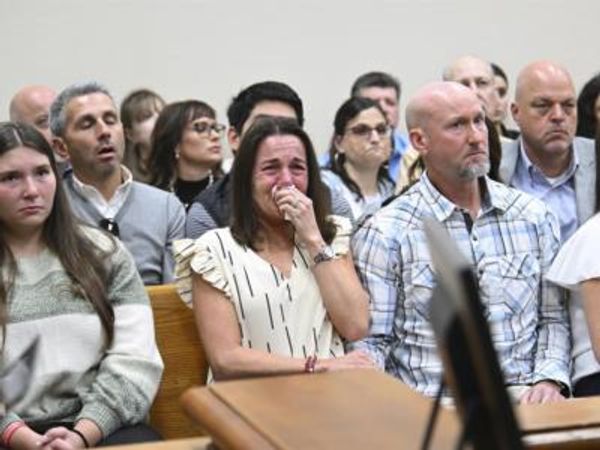
Steve Brennan writes: The Albanese government won’t do anything about the housing crisis this term (“Our housing crisis won’t be easily fixed. It’s designed not to be”). The major parties designed the problem and benefit from it. The whole system is broken from top to bottom and it will take another major shift in the balance of power at the next election to start repairing this ugly mess. I believe strongly that will happen.
Frank Ward writes: As a life member of the ALP it hurts me to say that I agree with the sentiment of Ben Eltham’s article. I have been involved with the housing industry since the 1950s and have seen every boom and bust over that time. In most cases the intervention by the federal government has led to a short-term boom and ultimate worsening of the housing industry. The stimulus by the Morrison government during the pandemic was reported by the UNSW planning department as benefiting three groups — real estate agents, vendors and developers — and now that interest rates are getting back to normal most first-home buyers realise that the Morrison gift was a poisoned parcel as they battle to save their homes from escalating repayment.
Until the Albanese government takes progressive action on the problems of housing it will provide the Greens with a popular platform to get votes for their impractical programs, but Labor must give the public real policies that attack the problem. If it indicated it would go to the polls on a policy of restricting negative gearing to one extra home and cut the rebate on capital gain, which has been increasing at the rate of more than $1000 a day at times during the boom, I believe the voters will support it. This must be followed by a massive funding of affordable and social housing.
Anthony McIntyre writes: What I find most annoying in the discussion about the housing crisis is how little attention is paid to the demand side. Australia has one of, if not the highest population growth rate in the Western world. The demand for housing is astronomical and even our huge housing construction industry cannot keep pace. It is the basic law of supply and demand which has pushed house prices and rents to the obscene level they are now.
Back in the early ’90s the Greens recognised that the biggest threat to the environment was more people. They had a zero population growth policy. That seems to have vanished. A Productivity Commission report I read basically contradicted almost every assertion being made as to why we somehow need massive population growth. It even described using immigration to fix the so-called ageing population problem as a “short-term sugar hit that would do nothing in the long term”. As it pointed out, “migrants also age”.
When I was at university the long-term sustainable population for Australia was calculated at 18 million. The “big Australia” push seems to be based on the assumption that natural resources are infinite. It fails to recognise that only 6% of Australia is considered arable. It fails to recognise that Australia is the driest inhabited continent in the world. It fails to recognise that our gas reserves are finite, the Bass Strait gas field is almost exhausted and the Moomba gas field has possibly 20 years left. Even less if exports increase. As a former mining engineer my job was calculating when ore bodies run out. They are not infinite. Even the iron ore in the Pilbara is not infinite. The ore that was cheap to mine has already been mined. When so much evidence is against the massive population push one has to wonder cui bono? Who benefits?
Keith Burrows writes: Back in the ’60s and ’70s my wife and I were able to pay off our house
in 10 years on only my modest salary as a teacher. We had no help from rich parents or any inheritance. We simply saved and bought a modest but very pleasant house in the outer suburbs of Melbourne. How totally unfair that my grandchildren have no chance of doing the same thing.
We pretend that somehow we have “advanced”, and yet one of the most important aspects of our lives, the ability to house ourselves, has gone well and truly backwards. One of my grandchildren with his partner has now bought a house, but recent interest rate increases have meant that basically all they can do now is pay the interest. They will be lucky if they can pay off the mortgage by the time they retire. On the other hand, because we could pay off our house in 10 years, my wife and I are now totally self-sufficient with a modest superannuation fund that should see us though. We will (hopefully) not need any support from the government. But what is going to happen when all these (now) young people reach retirement with nothing behind them?
The fact that the average politician has at least one “investment property”, and many have more, means that there is little incentive for government to do anything serious about the issue. We of the older generations have created a dastardly problem for young people and we must take responsibility for fixing it. We owe it to them. If that means we have to give up our tax perks and deal with rent caps, and more, then so be it.
Margery Clark writes: What Labor is doing about the housing crisis is merely tinkering at the edges. This problem needs a broad vision, something that Albanese is lacking in his effort to stay in office as long as possible. He is too craven to hurt the rich and as a result sufficient housing for the population is going nowhere. The public service needs to be built up and given the specific task of achieving a solution to this crisis.
Peter Nasarczyk writes: For more than a decade I have been asking politicians, the media etc how negative gearing on existing builds increases housing stock, but with no response. Negative gearing and the concessional rate of capital gains tax that accompanies it drives Australians into becoming landlords. But if they buy existing homes to do that, they do no more than increase owner-occupied homes. We must restrict negative gearing to new builds.
Simon Smith writes: Guy Rundle is right. Housing (shelter) is a human need not a want (“Housing Australia Future Fund? Four words, four lies”). For years the media have trumpeted real estate price rises as a positive sign for the economy, as a good thing for us all. The sad reality is that it’s a good thing for the wealthy and for foreign investors and developers but it’s a terrible thing for the middle and lower classes. I wish someone would stand up for what is ethical rather than for what is profitable.
Ian Hill writes: If we start with the old-fashioned idea that a house is a place for a person to buy to accommodate themselves and their family and not an instrument for speculative investment, how about a policy that encourages that?
Mortgage interest payments should be tax deductible on the house you live in. Other houses bought for investment should not be favoured by such tax arrangements as negative gearing and reduced capital gains tax but should be treated in common with any other investment. It would not ban investment in housing, but would help people buy a home to live in.
I’m not an economist but would be interested in any economic analysis of such a scheme, particularly regarding any unintended consequences which, in my naivety, I don’t foresee. I realise that in the present state of politics in Australia this would not be possible in the short term, but could it be a long-term aim?
David Edmunds writes: I think it is grossly unfair to compare Anthony Albanese with John Howard in “Albanese’s ‘core’ and ‘non-core’ promises”. Albanese has not sought to introduce many of the policies those of us on the left would like to see because Labor has recently lost two elections based on those policies — and to manifestly incompetent governments. The claim that he has done nothing is absolute nonsense: childcare, aged care and Medicare policies alone are big policy shifts in a progressive direction, and there are more.
Labor has won government only three times from opposition since World War II. This might not be the duck’s guts of progressive governments, but we have far more chance of competent, thoughtful and forward-thinking governance for the long term than the alternative — a flurry of progressive policies, followed by an election loss in three years and a period of conservative policy reversal.







